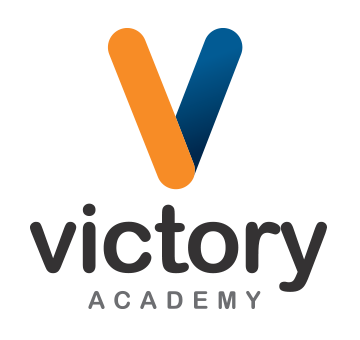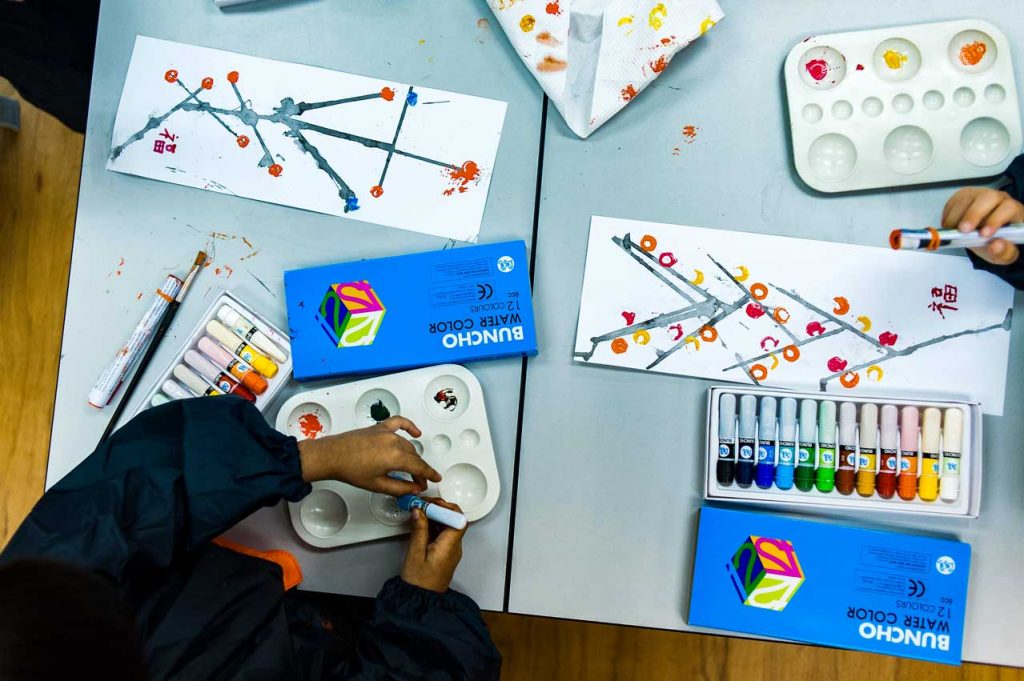Curriculum
Our curriculum is based upon British standards accessed through Cambridge qualifications which include both Primary and Secondary classes and IGCSE. Integrated within our curriculum is a focus upon service based learning as well as project work, which develops other skills’ such as independent thinking, presentations, group work and research.
The list of subjects of each age group are listed below
Biblical Emphasis
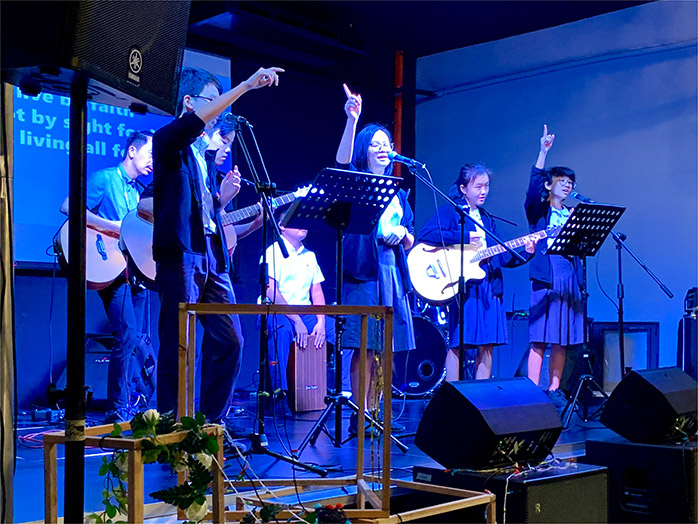
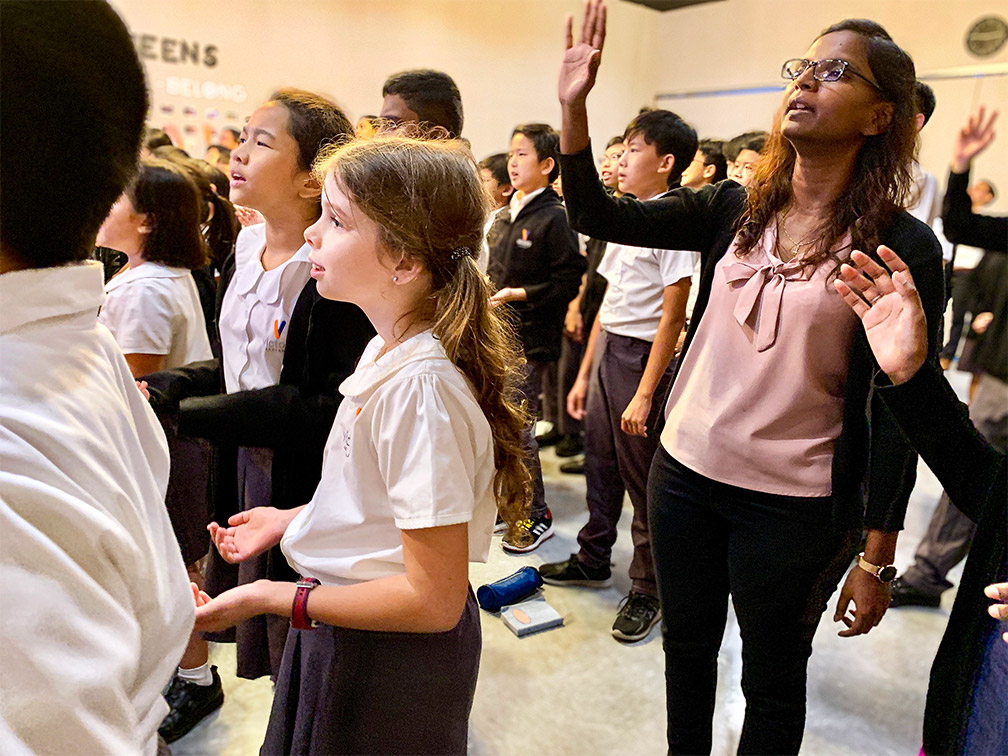
Chapel
Every week, the secondary and the primary students gather separately for chapel. This is a time to delve deeper into God’s Word and see how it applies to their lives today. The services are led by different pastors and leaders to sing praises and learn God’s Word.
Daily Devotions
In Victory Academy we truly believe that our personal relationship with Jesus Christ is the most important thing in our lives.. To demonstrate that priority and to foster a consistent relationship in the lives of our faculty and student body, time is set aside by both students and faculty members each day to spend quiet time with the Lord. Students and teachers set aside their studies and work to read the Bible, reflect and pray to God.
Bible Study Classes
Bible Study classes are a core part of our primary and secondary syllabus. Students will go through the Bible lessons with their teachers, to study and share about the different books, characters, stories and Biblical values.
The 6 Pillars of Development
Students love visuals because it’s engaging, fun and memorable. Visuals work because it often simplifies and communicates big ideas and concepts better than words do. It brings dull academic concepts to life with visual and practical learning experiences, helping students understand how their schooling applies in the real-world.
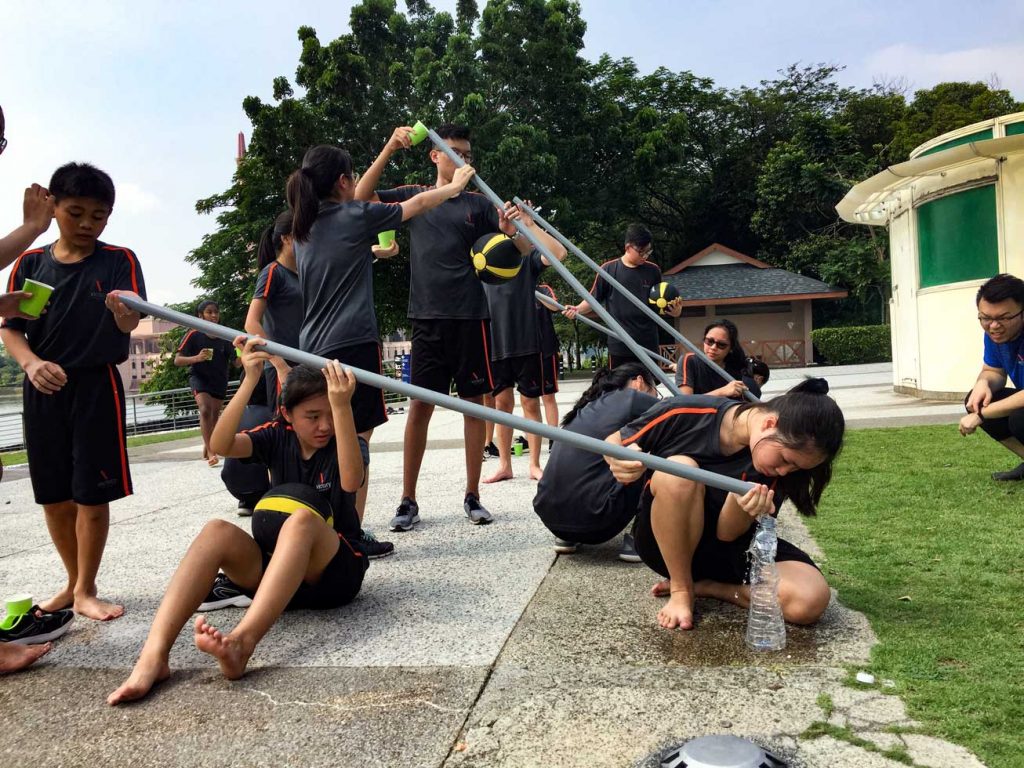 To help students learn better, many of our lessons are designed to engage students to work together. Classrooms are broken into small groups so students can discover a new concept together and help each other learn. All students would learn how to work cooperatively with others, compete for fun and enjoyment, and work autonomously on their own using a variety of learning activities.
To help students learn better, many of our lessons are designed to engage students to work together. Classrooms are broken into small groups so students can discover a new concept together and help each other learn. All students would learn how to work cooperatively with others, compete for fun and enjoyment, and work autonomously on their own using a variety of learning activities.
The core element is to showcase the positive effects of interdependence while underlining the importance of personal responsibility. The experience of working socially can also help students with soft skills and learning to cooperate with one another to achieve a greater goal and success.
 This is an educational approach that focuses honing and harnessing the student’s inquisitiveness, creativity and problem-solving skills.Instead of just memorising facts, we encourage students to employ critical thinking, questioning, and exploration, to different problems and situations.
This is an educational approach that focuses honing and harnessing the student’s inquisitiveness, creativity and problem-solving skills.Instead of just memorising facts, we encourage students to employ critical thinking, questioning, and exploration, to different problems and situations.
This encourages our students to develop their abilities to ask questions, design investigations, interpret evidence, form explanations and arguments, and communicate findings. We find through this approach students are more engagement in their learning, research and memory retention of their learnings.
We believe that many students struggle because they are unable to keep pace. When that happens, they begin to lose confidence, and interest in learning. It’s for this reason, we believe lessons should be adapted according to their needs to build their confidence.
First we observe and recognise the barriers that the students face. A deeper understanding will help us prepare the right tools and expertise to build a teaching plan according to the student’s strengths, needs, skills and interests. Students work with their teachers to set both short-term and long-term goals. This process helps students take ownership of their learning and milestones.
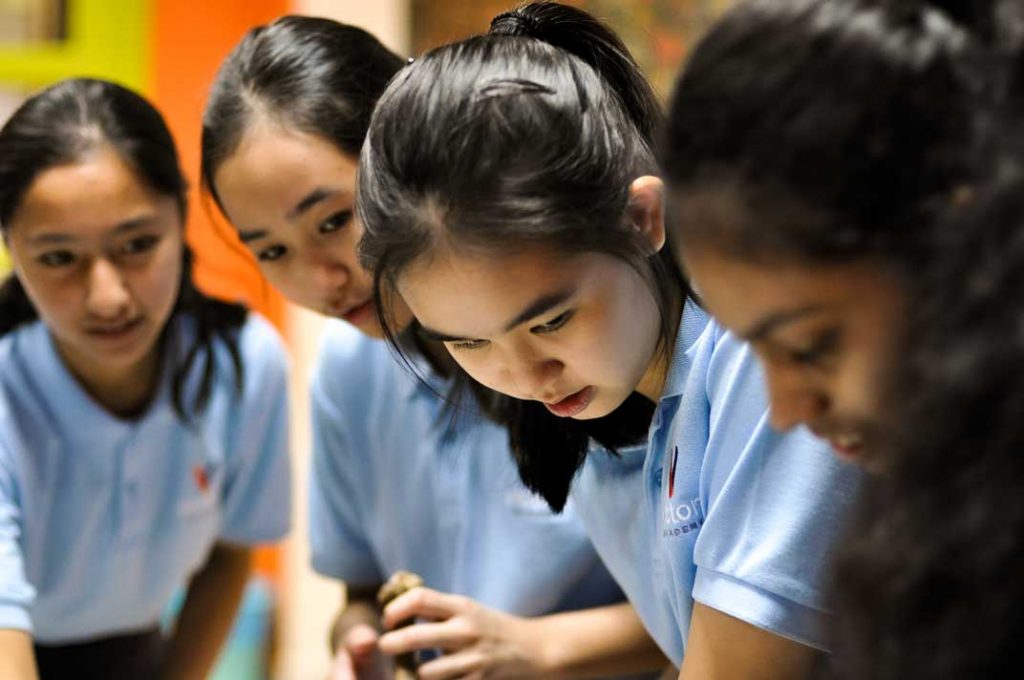 Although technology can sometimes be a distraction, if used properly, it’s a very powerful tool that makes lessons more interactive, immersive, and supportive for students. As such, IT integration in learning needs to be seamless to support the student’s overall learning goals at hand. Access to information, tools and even new ways of expressing themselves artistically and creatively are some of the opportunities that IT provides for the students.
Although technology can sometimes be a distraction, if used properly, it’s a very powerful tool that makes lessons more interactive, immersive, and supportive for students. As such, IT integration in learning needs to be seamless to support the student’s overall learning goals at hand. Access to information, tools and even new ways of expressing themselves artistically and creatively are some of the opportunities that IT provides for the students.
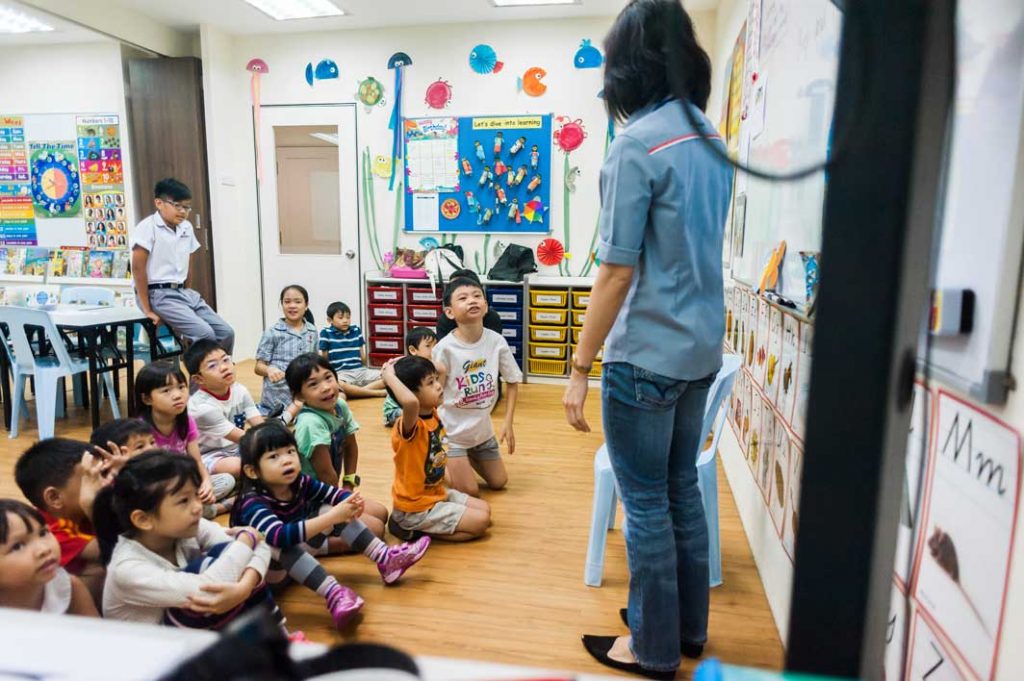 Lastly, we have character and behavioral development. We firmly believe that a student’s growth is not just about the knowledge they attain, but the choices that they make, and the character they become.
Lastly, we have character and behavioral development. We firmly believe that a student’s growth is not just about the knowledge they attain, but the choices that they make, and the character they become.
These strong choices and positive behaviours can be instilled and cultivated in the students, especially if done at an early age and within an environment that’s healthy and conducive. Students are taught to develop routines, clear rules and guidances are communicated, and a culture of respect and honour for student and teachers are instilled. But more importantly, we believe in developing a good, healthy and caring relationships with our students, to encourage honest sharing, accountability, self awareness and trust with the students.
